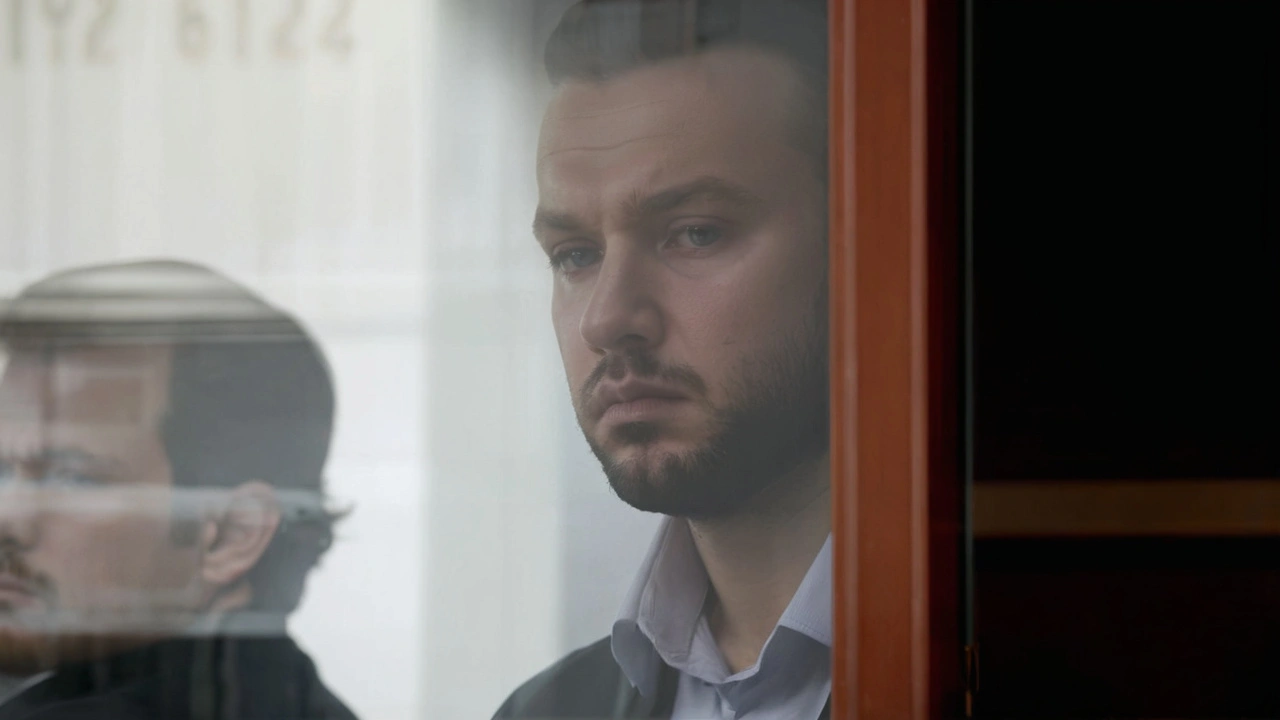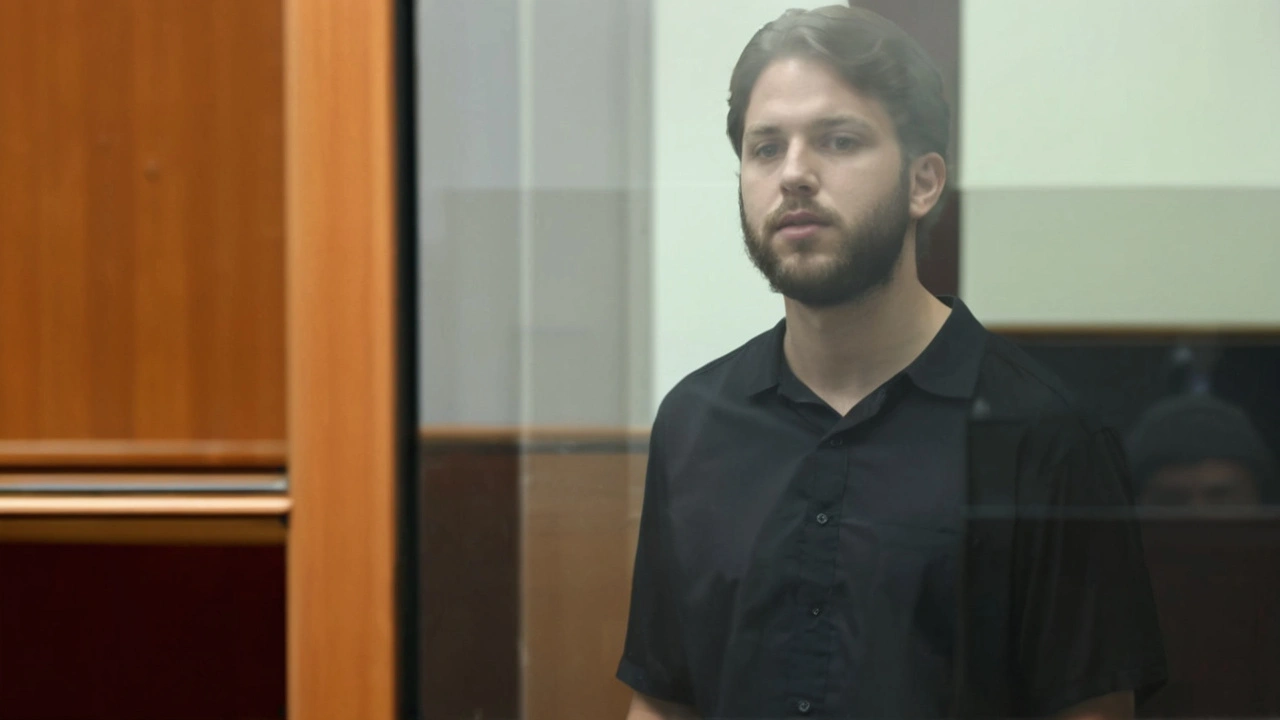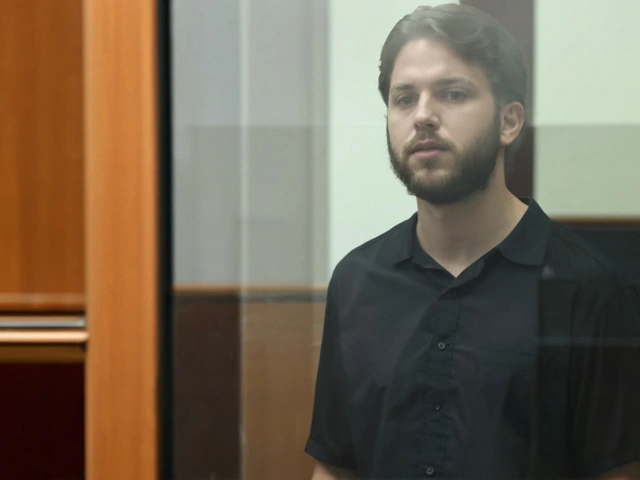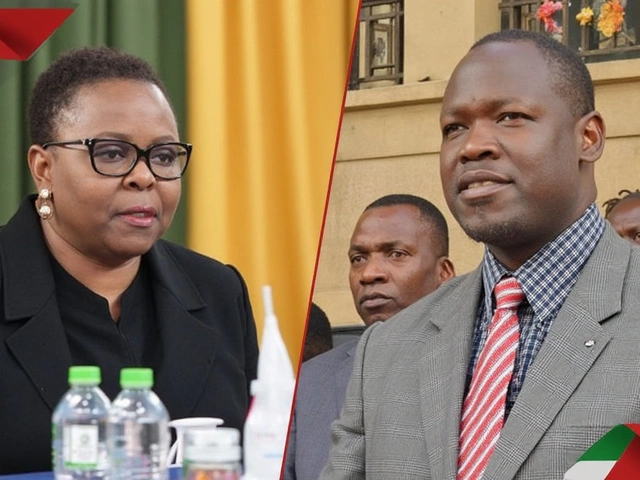Evan Gershkovich, an American reporter for the renowned Wall Street Journal, has been sentenced to 16 years in a Russian prison after being found guilty of espionage by a Russian court on Friday. This verdict has provoked a wave of outrage and condemnation from various fronts, including his employer, his family, and high-ranking officials in the US government. The trial, which was cloaked in secrecy and marked by a plethora of inconsistencies, is widely being regarded as a sham by those who stand in solidarity with Gershkovich.
Gershkovich, a seasoned journalist with a sterling reputation, was on a reporting trip in Yekaterinburg when he was abruptly detained in March. The Russian prosecutors allege that he was engaged in espionage activities on behalf of the Central Intelligence Agency (CIA). These serious charges have been vehemently denied by Gershkovich himself, his family, the Wall Street Journal, and US government officials. The arrest and subsequent conviction have revived memories of Cold War-era hostilities, as this case marks the first instance in over three decades where a US journalist has been accused and convicted of espionage in Russia.
The Arrest and Charges
Gershkovich was apprehended on allegations of spying for the CIA, an accusation that carries grave implications and has significant historical baggage. According to the prosecutors, Gershkovich was purportedly collecting classified information under the guise of journalism. However, the Wall Street Journal and his colleagues argue that his activities were strictly related to his reportage, and he was simply performing his duties as a journalist. His arrest, devoid of concrete evidence presented to the public, has cast a long shadow of doubt over the integrity of the trial process.
Reaction to the Verdict
The reaction to the verdict has been swift and severe. The Wall Street Journal released a strong statement decrying the trial as a “sham” and calling for his immediate release. Likewise, Gershkovich's family expressed their profound disappointment and distress over the court's decision. High-ranking US officials, including representatives from the White House, have also condemned the verdict, labeling it as unjust and politically motivated. The US government has pledged to continue advocating for Gershkovich's release and to exhaust all available diplomatic channels to bring him back home.
This conviction is likely to exacerbate the already strained US-Russia relations, plunging them further into a diplomatic quagmire. With tensions between the two nations already running high due to various geopolitical conflicts, this case adds fuel to the fire and underscores the precarious nature of international journalism in geopolitical hotspots.

Legal Proceedings and Potential Appeals
Both sides now face a 15-day window to file an appeal against the verdict. Legal experts suggest that the appeal process could be riddled with challenges, given the opaque nature of the Russian judicial system in cases involving national security. Despite these hurdles, Gershkovich's legal team remains determined to fight the conviction, drawing attention to the lack of transparency and the dubious nature of the evidence presented during the trial.
International human rights organizations have also thrown their weight behind Gershkovich, condemning the trial and calling for reforms in Russia's judicial handling of espionage cases. They argue that this conviction sets a dangerous precedent for the treatment of journalists and underscores the risks faced by reporters working in regions with restrictive regimes.
Implications for Journalism and International Relations
The conviction of a US journalist on espionage charges in Russia sends a chilling message to the global journalism community. It highlights the perils faced by journalists who endeavor to report from within authoritarian regimes and brings to light the broader issue of press freedom. Several journalism advocacy groups have voiced their concerns, noting that such actions threaten the fundamental principles of free press and could deter journalists from covering critical issues in politically volatile regions.
The geopolitical implications of this case are also profound. As the first espionage conviction of a US journalist in Russia since the Cold War, it signals a possible resurgence of Cold War-era tactics and sentiments. The case is likely to further entrench the adversarial relationship between the US and Russia, making diplomatic negotiations on various other contentious matters even more challenging.
This incident also prompts serious introspection within the journalistic community regarding safety protocols and measures for reporters operating in high-risk zones. It calls for renewed efforts to ensure that journalists are protected under international laws and that their rights to report freely and without fear of retribution are upheld.
In summary, the sentencing of Evan Gershkovich to 16 years in prison on espionage charges not only impacts him and his loved ones but also reverberates through the corridors of international journalism and diplomacy. As appeals are filed and diplomatic efforts intensify, the world watches closely, hoping for a fair resolution to this politically charged case.







Post A Comment